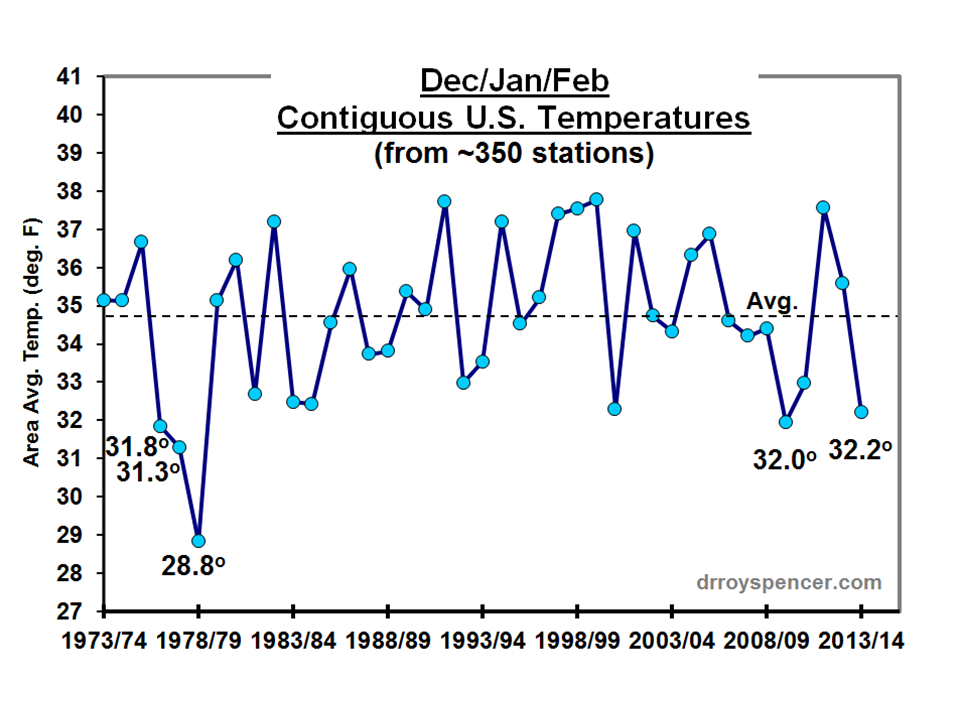The primary winter months of December, January, and February averaged over the contiguous 48 United States were the 2rd coldest winter in the last 35 years. The average temperature of 32.2 deg. F was barely edged out by the slightly colder winter (32.0 deg. F) of 2009-2010 (click for large version):

The analysis is based upon ~350 NOAA/NWS stations that measure temperatures every 6 hours (or more frequently), many located at airports. The data I use are adjusted for average spurious urban heat island (UHI) warming that increases with population density around the thermometer site. That relationship is shown at the end of this article.
The analysis starts in only 1973 since that is the first year with a large amount of quality-controlled 6-hourly temperature data archived at NOAA. The official NOAA temperature product (not yet announced) in contrast depends upon stations which generally don’t report hourly temperatures (mostly daily max/min temperatures), and which require large (and controversial) adjustments for varying time of observation.
Note also that 6 of the last 8 winters have been below the 41-year average.

 Home/Blog
Home/Blog



